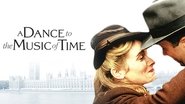Tweekums
Starting in the 1920s this four part series is centred on Nick Jenkins, a public school boy, and his circle of friends. Over the next five decades their lives are intertwined along with those of their families and associates. As time passes the fall in love, marry, and in some cases fall out of love or die. While Nick is a fairly ordinary chap those around him aren't; most notably Kenneth Widmerpool… at school he is considered somewhat of a joke but later he rises higher and higher; first in the military then in politics. Meanwhile another friend who seemed destined for effortless success sinks into alcoholism and obscurity. As time passes more and more people enter the story; each somehow connected to the original friends who met at school.The plot to this series might not make it sound too exciting; it is more a case of observing people's lives than a traditional drama. To my mind this wasn't a problem though; the characters were interesting and didn't always act as one might first expect. It does of course rely on a lot of coincidences as the cast keep meeting the people they know in a variety of locations. The story features many really funny moments as well as some tragedies. The large cast does an impressive job; most notably Simon Russell Beale, who does a great job portraying Widmerpool from schoolboy to old man, James Purefoy who played Jenkins in the first three episodes and Miranda Richardson, who puts in an unforgettable performance as Femme Fatale Pamela Flitton. The opening scene, where Claire Skinner opens the door to Jenkins while stark naked may make some viewers get the wrong idea about what sort of series this will be; apart from that scene there is only a small amount of non-sexual nudity and a small amount of swearing; not enough to offend most people. Overall I'd recommend this series; just don't expect lots of 'stuff' to happen.
ybrika
Though nothing can compare with the books this is quite a fine stab, studded with the finest English talent of its period sensitively cast, and moderately faithful to significant portions of the books. The narrator's voice and perspective are well maintained though oddly James Purefoy is replaced by an excellent but jarring John Standing in the last episode while most of the other actors are cosmetically aged with varying degrees of success. Simon Russell Beale excels but does not dominate as the repulsive Widmerpool and the female characters live as they don't always in the books where they are seen through men's eyes. The music is well chosen and used from Coward's "Twentieth Century Blues" onwards and the use of visual art, including the eponymous Dance is apt.
David198
They don't make adaptations like this any more - no doubt for cost reasons and a lack of imagination and bravery at the TV companies. 7 hours of solid drama, yet full of incidental humour and some very fine characterisations.Unfortunately it is flawed, and the flaws make it just very good viewing rather than the excellent series it should have been. The biggest flaws to my mind are: 1 The decision to replace Nick and his wife by new actors for Film 4 was totally wrong. Nick ages far too much in too short a space of time, and looks completely different. This creates a real problem of believability.2 Still on ageing, some of the actors are 'aged' very well, whilst others (especially the ladies and Odo) seem hardly any different as the decades progress.3 Film 4 is by far the weakest, though to be fair this reflects the books on which it is based. Perhaps it should have been cut further and the earlier years given even greater prominence.4 Despite a great deal of pruning, there are still too many characters and insufficient narration for non-aficionados of the books to be sure all the time of who is who.5 The scenes often seem to be a succession of dramatic deaths - difficult to avoid with the way the story has to be condensed, but very predictable nonetheless.However, it's still pretty good, and light years removed from much of the dumbed-down drama on TV today.
dehodneth
It's possibly a bit late to post this question but as I have only now managed to see the video, here goes anyway. Does anyone know WHY it was deemed necessary to replace James Purefoy and Emma Fielding as Nicholas Jenkins and his wife in the last film of the series? Most of the other characters were left to age, convincingly or otherwise, even Widmerpool himself. Though Joanna David did at least bear a tolerable resemblance to how Isobel (Fielding) might have looked in later life, John Standing, excellent actor though he is, didn't look remotely like an aged James Purefoy. The changeover broke the continuum of events for me and was a constant source of irritation. What was behind this strange, irrational decision?



